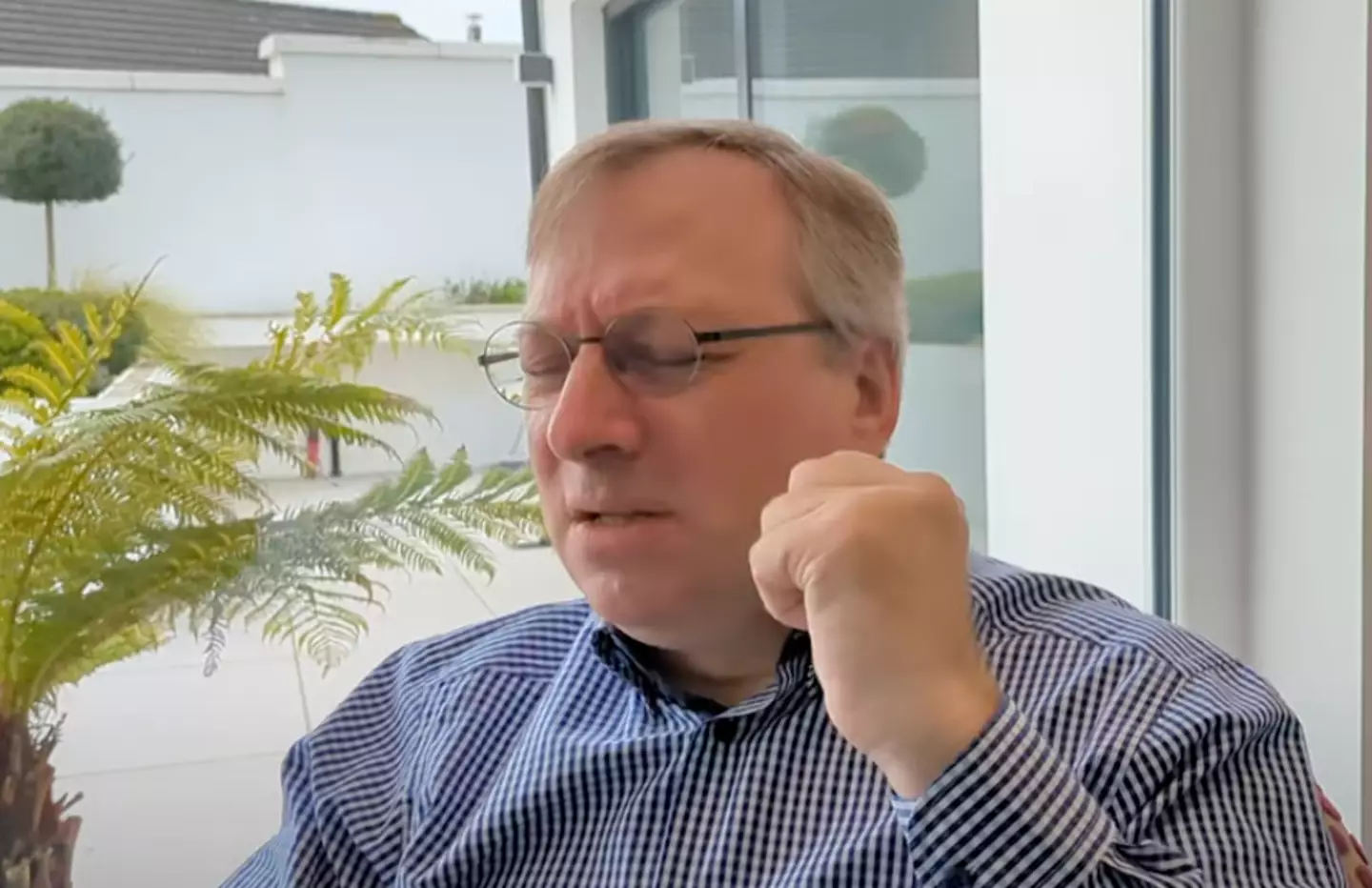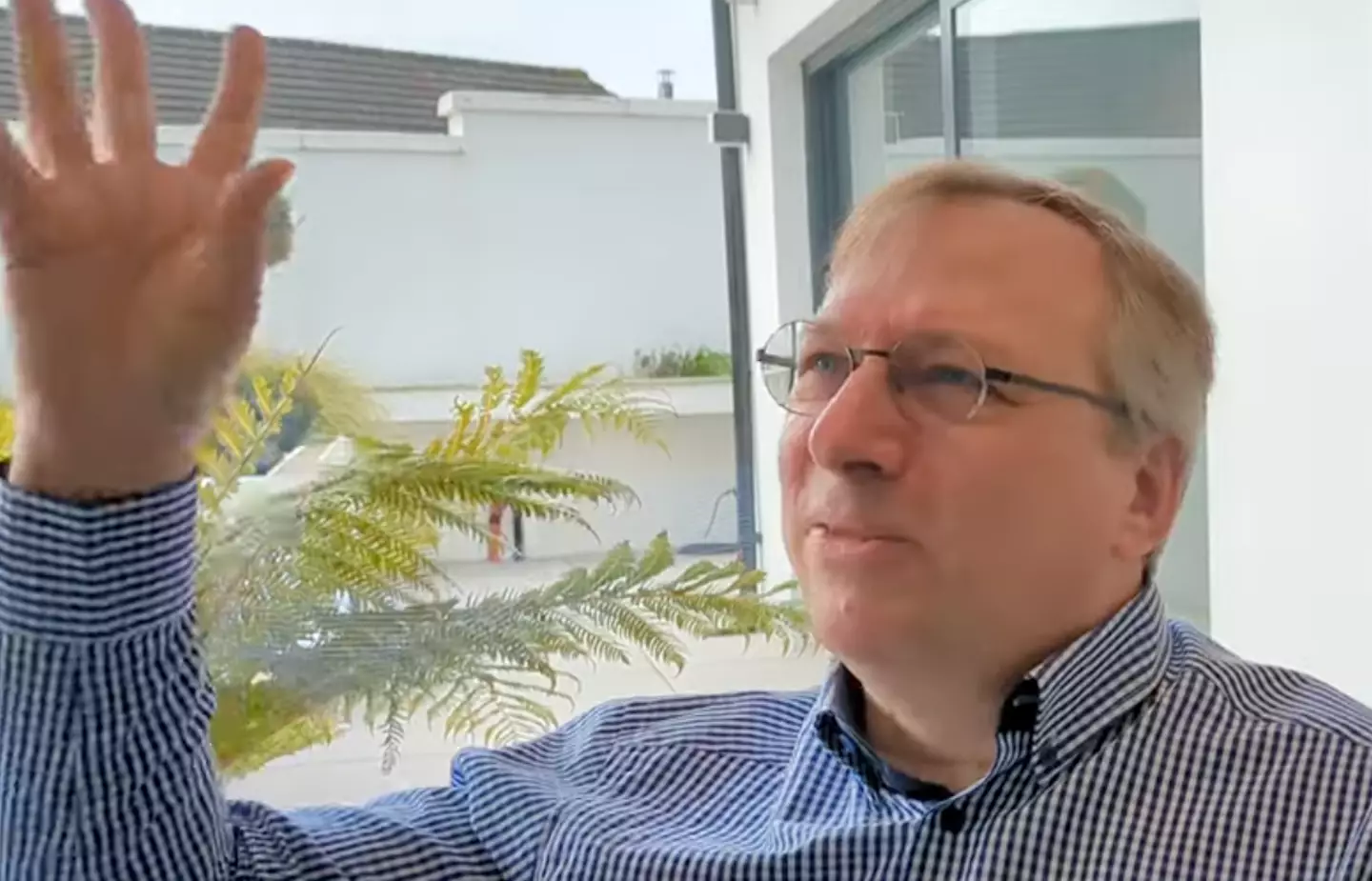
A man has opened up about being diagnosed with frontotemporal dementia in his 40s.
Peter Alexander was 49 years old when he made an appointment with a neurologist and went to get scanned after beginning to 'struggle' at work.
The scan led to him being diagnosed with frontotemporal dementia (FTD) - 'an umbrella term for a group of brain diseases that mainly affect the frontal and temporal lobes of the brain,' Mayo Clinic explains.
The same type of dementia actor Bruce Willis has been diagnosed with, FTD affects 'areas of the brain' 'associated with personality, behavior and language,' parts of the lobes 'shrink[ing]' - known as 'atrophy' - with symptoms ranging from personality changes such as increased impulsivity or emotional indifference to losing the ability to 'properly use language'.
Advert
And Peter has since opened up more about the symptoms of his frontotemporal dementia and what he began noticing while working.
Peter told BBC News NI he started 'to struggle to meet deadlines [at work] which had never been a problem before'.
"And during meetings, I wouldn't be able to think of a word when speaking," he continued.
Peter remembers the day he was diagnosed 'very clearly,' January 14, 2018 seeing his results come back and his doctor break the news.
Alongside being told about his diagnosis, Peter was also 'basically told that it was no longer safe for [him] to work'.
"Because I have diminished judgment and I was losing my filter," he explained. "So it was a lot to adapt to."
Peter is now using his YouTube channel to raise important awareness of the condition.

In one video posted in February, he opens up about how the condition affects his speech and ability 'to complete executive function'.
Giving an example, Peter sets himself a maths equation, explaining how he used to be able to do additions 'without difficulty' but now finds it hard to remember the first part of a calculation if he then has to do another straight after and then combine them together again.
"Before I could actually do it very rapidly and without consciously thinking of it, but with the impaired judgement and the impact on the executive function of the brain, it makes these things difficult," he reflected. "So the working memory is impacted."
However, 'on the other hand there's a benefit,' he argues, Peter noting despite some parts of his brain shutting down, other things are 'opening up on the other side of the brain' - 'rhythm and music becoming increasingly fluid' - and he's found 'a freedom that [he] didn't enjoy before'.

While he 'might not always be able to express' himself in the 'same way,' Peter told the BBC he is 'still the same person' he 'was' and doesn't 'want to be treated differently' - imploring others to 'see the person' and 'see beyond the condition'.
He resolved: "Inside I'm still Peter."
If you've been affected by dementia or Alzheimer's and would like to speak with someone in confidence, contact the Alzheimer's Association via 800.272.3900 open 24 hours seven days a week.
Topics: UK News, Health, Mental Health